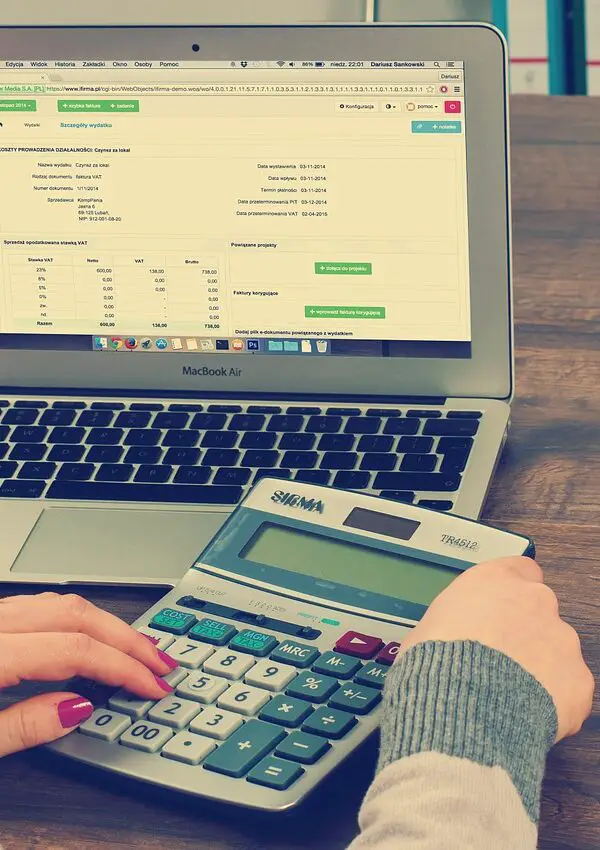
The best ways to track finances include; use of finance tracking spreadsheets, account books, print-outs, and mobile apps. Tracking your finances gives you the opportunity to plan ahead and eliminate unnecessary expenses. Doing this enables you to save more as you strive to achieve financial freedom.
Tracking your finances is a great way to understand where your money goes. It will help you get a better view of your finances, and it can help you make more informed spending decisions.
Benefits of Organized Finance
Organized finance is the key to success. Finances are not just about money but also planning and budgeting. Every person must have this system to ensure everything stays on track and that no one is spending more than they can afford.
Extra Motivation to Achieve Saving Targets
One of the best ways to achieve your saving target is by turning your savings into a game. This method increases your chances of success as it generates more excitement about saving money and puts things into perspective by introducing a sense of competition between friends and family members.
Becoming Aware of Spending Habits
It’s not only about what you spend, but how you spend money is crucial. As an individual, it’s hard to track what you’ve spent daily. The best way to do this is using an intelligent accounting app like Mint.
Knowing Your Budget
Set up a budget and stick to it. If you struggle with your budget, consider ways of solving it.
Ability to Plan Ahead
Planning is one of the most important skills you can have. If you don’t plan, you can easily fall into debt or end up in a situation where your finances are a mess.
Tracking Tips
1. Finance Tracking Applications For Mobile Phones
One of the best ways to track your finances is using mobile phone finance tracking apps.
Examples of these apps include;
● Mint – Mint is a free, open-source money management tool that syncs across your bank accounts and credit cards. It saves you time and helps you take control of your money by providing insights into spending habits, budgeting, and saving.
● Personal capital – The app has a robust set of tools that lets you see your net worth, make a portfolio and investment changes, download tax forms, optimize your investment strategy, and more.
● Mvelopes – This iOS app uses envelope budgeting to help you allocate money between retirement savings, travel adventures, or gift-giving goals. It tracks how much you’ve saved in each category and analyzes how well you’re doing against your goal.
There are global banks that offer similar apps combined with online banking.
2. Finance Tracking Spreadsheets
Many people choose spreadsheets as their primary way of managing their finances because they are easy to use, entirely customizable, and reliable. You can use it on various devices like smartphones or laptops.
The most used spreadsheets are:
Microsoft Excel; It’s an integrated software application that performs arithmetic, data analysis, and database management functions. You can use it to manage finances through its various tools.
Google sheets; A spreadsheet that is accessible through Google Drive. It is not as advanced as other spreadsheet applications like Microsoft Excel but still offers many features to help track your finances.
All these tools are accessible online from anywhere in the world.
3. Print Outs
Printouts are another excellent way to track finances.
Pre-structured financial planning templates are available online.
4. Journal Style Account Books
There are different accounting books used to track finances.
A chart of accounts is a good example. A chart of accounts has four columns;
● Assets
● Liabilities
● Revenues
● Expenses
You can add other sub-accounts according to your needs.
You can also track your finances through non-digital means, like the good old pen and paper.
Importance of Personal Finance Management
Financial management plays a big role when it comes to how to track finances. The following are reasons why personal finance management is essential.
You Become More Financially Literate
Financial literacy and a solid personal finance management strategy are essential if you want to track your finances fully. Your basic understanding of money can be that you use it as a tool to buy what you desire and need. However, to understand the true worth of your cash and how it functions, you need to learn more than the fundamentals.
You can improve your financial literacy and understand your finances by reading financial blogs and attending seminars.
You’re Able to Set up Specific Financial Objectives
Setting financial goals should be your top priority if you want to achieve financial freedom. Knowing how to manage your personal finances will help you to track your finances effectively.
Tracking your daily expenses is one way of accomplishing this objective.
You’ll be Able to Effectively Manage Your Spending and Savings
You might only be familiar with how to use money to pay bills and other regular obligations like your debt or mortgage. However, good finance management will help you to properly track your expenditure.
You will be aware of where every penny goes and eliminate unnecessary expenses through proper financial management. If you don’t keep track of your spending, you are neglecting a crucial aspect of financial management.
How to Curb Overspending
You can track your finances and still end up overspending. To avoid overspending, follow these tips.
Track Your Purchases to The Last Penny
Even the smallest purchases can add up to a lot by end month and deplete your bank account. The secret to creating a successful budget is keeping track of your spending because it makes you responsible for each dollar. Knowing where every penny is going will give you a better chance to make wiser financial decisions and find areas where you can make savings.
Set Short, Attainable Goals
Setting some short-term financial goals that you can actually achieve will help you stay motivated as you change your spending patterns. These objectives will serve as a regular reminder of the causes behind your cost-cutting and minor sacrifices. Your objectives must also be very specific.
For instance, a short term goal can include setting aside 10% of each pay check into a separate account or carrying lunch for a month rather than ordering take-out.
Stick to Cash, Avoid Credit Cards
When you use cash, you can actually see how much money you have and how much you’re spending each time. You constrain yourself to spend only what you have if you only accept cash payments. Therefore, take a break from using your credit cards and stick to cash to see if it would help you reduce your spending.
Identify What Triggers Your Spending
Finding your psychological and emotional triggers can help you to stop over spending. You’ll eliminate the temptation to overspend if you avoid those triggers.
Closing Notes
Tracking your finances can be a high-energy task that is often strenuous and tedious, especially if you have a lot of bills to follow. Fortunately, using the above means like spreadsheets, apps, or even paper sheets simplifies things. You don’t have to go through hell to track your finances, choose what best works for you and go with it.





